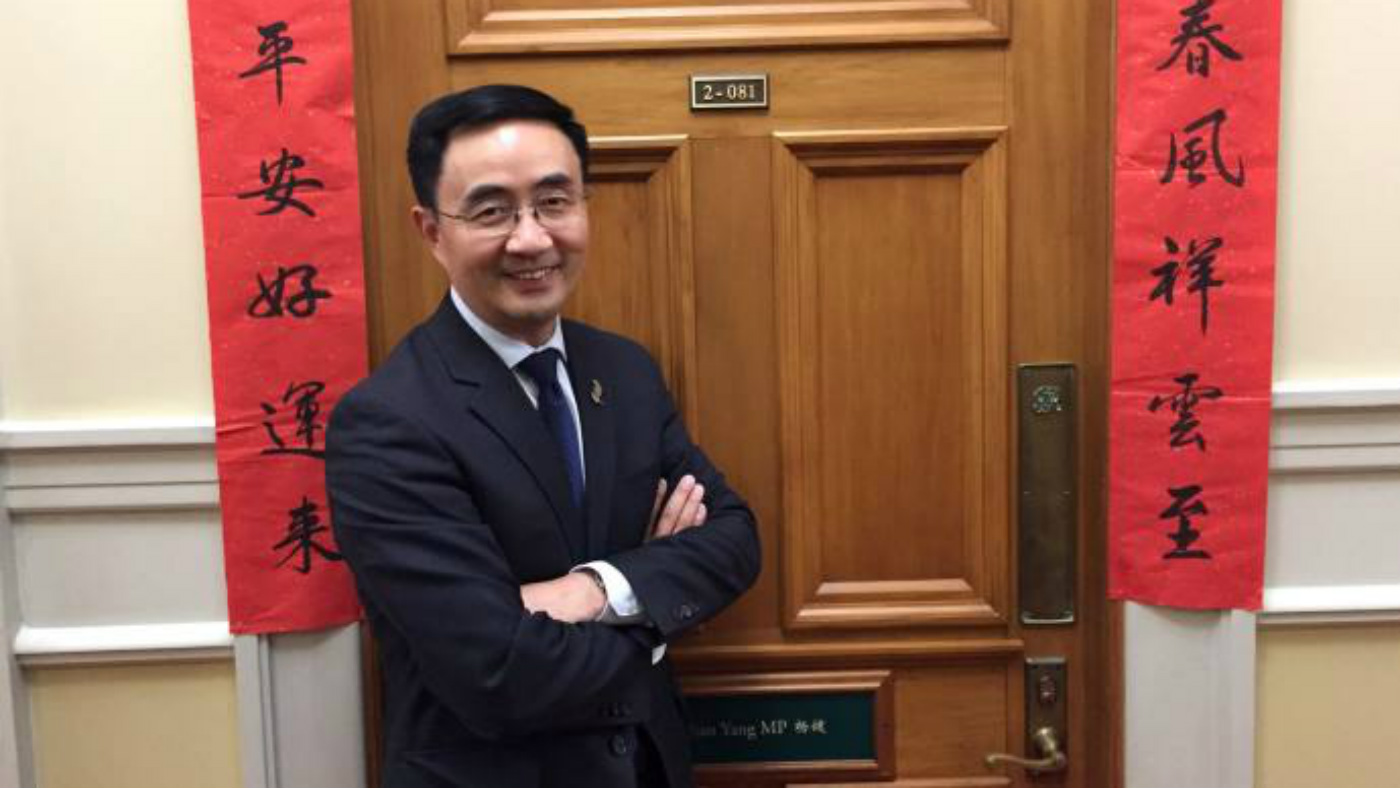New Zealand election may turn on spy scandal
Labour and National parties neck-and-neck ahead of Saturday’s vote

A free daily email with the biggest news stories of the day – and the best features from TheWeek.com
You are now subscribed
Your newsletter sign-up was successful
New Zealand’s conservative National party had hoped to coast into a fourth consecutive win at this Saturday’s election, but the status quo is being threatened by an upstart Labour opposition leader and an internal spy scandal.
Energetic 38-year-old Jacinda Ardern moved into the spotlight only two months ago when Labour leader Andrew Little resigned. Previously Little's deputy, Ardern was appointed opposition leader to take on Prime Minister Bill English.
Ardern, a novice who once worked as an aide to Tony Blair, went down well with women on the campaign trail, particularly when she slapped down an interviewer asking if she had plans to have a baby, The Daily Mail says.
The Week
Escape your echo chamber. Get the facts behind the news, plus analysis from multiple perspectives.

Sign up for The Week's Free Newsletters
From our morning news briefing to a weekly Good News Newsletter, get the best of The Week delivered directly to your inbox.
From our morning news briefing to a weekly Good News Newsletter, get the best of The Week delivered directly to your inbox.
In a remarkable turn-around, Ardern is now a household name worldwide and Saturday’s race is “neck-and-neck”, says CNBC.
The China connection
Jacinda Ardern isn’t the only wild card in an unusually exciting New Zealand political race, infused with John Le Carre-style intrigue.
A joint investigation by the Financial Times and Newsroom NZ made international headlines last week when journalists accused National party MP Jian Yang of having once taught at an elite Chinese spy school.
A free daily email with the biggest news stories of the day – and the best features from TheWeek.com
The alleged that Yang spent a decade in China receiving military and intelligence training and working as a teacher at the Luoyang Foreign Language Institute, described by the FT as China’s answer to the UK’s GCHQ intelligence agency.
Yang denied being a spy during a press conference last week but admitted training Chinese spies to monitor communications from other countries. He refused to say whether they included New Zealand.
Echos of The Americans
“The story of Jian Yang MP has echoes of The Americans,” says The Sunday Times, referring to the television spy series about undercover Russian agents who live abroad and work in banal jobs.
Even if Yang has done nothing wrong, the spy scandal has cast Bill English's National party in a poor light.
“It is entirely possible that Yang severed all ties with Chinese military intelligence when he left China in 1994 and has had no contact with any Chinese agents since then,” writes the FT’s Jamil Anderlini. But he adds: “The fact he was able to enter parliament with very little scrutiny and serve on a committee overseeing foreign affairs, defence and trade, and that his education and military intelligence background appeared nowhere on his official biographies in New Zealand, raises some troubling questions.”
The spy row has “boosted” Ardern’s chances of becoming prime minister, The Sunday Times says, and has re-engergised a campaign bogged down with more minor issues, including plans to make New Zealand rivers swimmable, boost student allowances and invest in roads and transport links.
“Anticipation is building in the south Pacific nation where, for the first time in a decade, the outcome of the vote is genuinely up for grabs,” The Guardian says.
-
 Political cartoons for February 16
Political cartoons for February 16Cartoons Monday’s political cartoons include President's Day, a valentine from the Epstein files, and more
-
 Regent Hong Kong: a tranquil haven with a prime waterfront spot
Regent Hong Kong: a tranquil haven with a prime waterfront spotThe Week Recommends The trendy hotel recently underwent an extensive two-year revamp
-
 The problem with diagnosing profound autism
The problem with diagnosing profound autismThe Explainer Experts are reconsidering the idea of autism as a spectrum, which could impact diagnoses and policy making for the condition
-
 Epstein files topple law CEO, roil UK government
Epstein files topple law CEO, roil UK governmentSpeed Read Peter Mandelson, Britain’s former ambassador to the US, is caught up in the scandal
-
 Iran and US prepare to meet after skirmishes
Iran and US prepare to meet after skirmishesSpeed Read The incident comes amid heightened tensions in the Middle East
-
 Israel retrieves final hostage’s body from Gaza
Israel retrieves final hostage’s body from GazaSpeed Read The 24-year-old police officer was killed during the initial Hamas attack
-
 China’s Xi targets top general in growing purge
China’s Xi targets top general in growing purgeSpeed Read Zhang Youxia is being investigated over ‘grave violations’ of the law
-
 Panama and Canada are negotiating over a crucial copper mine
Panama and Canada are negotiating over a crucial copper mineIn the Spotlight Panama is set to make a final decision on the mine this summer
-
 Why Greenland’s natural resources are nearly impossible to mine
Why Greenland’s natural resources are nearly impossible to mineThe Explainer The country’s natural landscape makes the task extremely difficult
-
 Iran cuts internet as protests escalate
Iran cuts internet as protests escalateSpeed Reada Government buildings across the country have been set on fire
-
 US nabs ‘shadow’ tanker claimed by Russia
US nabs ‘shadow’ tanker claimed by RussiaSpeed Read The ship was one of two vessels seized by the US military